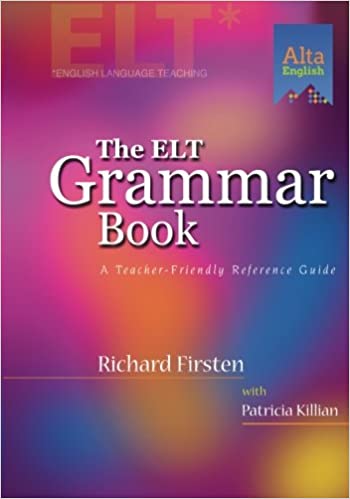Although grammar is not tested directly on the iBT, you can count on raters noticing if your grammar is especially good—or especially bad—in each of your responses. Grammar tends to fall by the wayside when people are preparing for the TOEFL, since it lacks the urgency of the subjects that are directly tested, and a lot of people find grammar to be capricious and dull.
The grammar that you learn in English classes is pretty different from what native speakers have to worry about. Grammar lessons for native speakers spend a lot less time worrying about which tense to use and a lot more time worrying about things like parallel structure and misplaced modifiers. At www.howsyourgrammar.com, you can take a short assessment that will check your grasp on several of the bigger difficulties of English grammar. What’s great about this site is that, for the most part, it sticks to topics that matter rather than minor stylistic considerations. By taking this quiz and reviewing any problem areas, you will learn to clarify and condense your writing so you get your point across as effectively as possible.
Below I’ve included a brief summary of the problem in each sentence (if one exists). If a topic is unclear to you, click on the name of the problem, and you will be linked to the relevant podcast and article from Grammar Girl, an excellent resource for all your grammar needs. If you have a question that isn’t answered in my summary or the Grammar Girl page, please leave me a comment, and I’ll answer you as soon as I can!
The questions in the quiz appear in a different order each time. Below I have listed the beginning of each question along with the topic(s) it tests in the order in which they appeared for me; if your quiz is arranged differently, you’ll have to jump around a bit.
Grammar Girl Quiz Answers and Explanations
1. Parallelism: When you write a list, you need to write each separate part of the list in the same format. If you start with a verb stem for #1, you also need to start with a verb stem for #2, #3, #4, and so on.
“Here are our objectives for the following year: 1) Send announcements to our field offices about all new products as soon as they are introduced to the market…
2. Subject-verb agreement: Sometimes the subject of a sentence gets hidden behind a mess of prepositional phrases and other less important grammatical units. If you remove all the unimportant elements, you should be left with one noun and one verb. These must agree in number/conjugation.
“Confusion about policy statements, particularly those regarding…
3. Capitalization: As a general rule, only capitalize nouns that are “proper,” or the only one of their kind.
“Our company, which is headquartered in the heart…”
4. Apostrophes: The plural S never ever takes an apostrophe. The apostrophe only comes with possessive forms.
“The policy that affects most of our employee’s has been changed….”
5. Subject-verb agreement with compound subjects: See #2.
“Sleeping late and golfing with senators….”
6. Parallelism: See #1
“We cannot decide whether to lease the land…”
7. Colons: When writing prose, only use a colon after an independent clause (what I’m doing—using a colon to separate each title from the information around it—is a different situation).
“They have shopping malls…”
8. Dangling Participles: A participle that is in a dependent clause as this one is should always refer directly to the subject of the sentence. To put it more concretely, this sentence is incorrect because the SUPPLIES (subject) are not the ones that are ASSUMING (participle).
“Assuming the sales figures are indicative of a trend….”
9. Dangling Participle: See #8.
“The forms are being completed by our field sales managers containing the monthly sales data.”
10. Less vs. fewer: Use “less” only to describe non-count nouns (and adverbs/adjectives; “I have less time than you”), and “fewer” only to describe count nouns (“I have fewer apples than you”).
“Pedro has less opportunities….”
11. Sentence fragments: A key word is missing. Which is it?
“Products and services offered over the Internet…”
12. Dangling Participles: See #8 (can you tell this is hard for a lot of people?).
“Often ignored and underpaid…”
13. Parallelism: See #1.
“All suppliers should send their invoices….”
14. Subject-verb agreement: See #2.
“The number of options identified…”
15. Noun-pronoun agreement: The pronoun refers to “contracts”, a plural noun, so it should be a plural pronoun.
“The client reviewed the contracts before the meeting….”
16. A vs. an: Use “a” before words that start with a consonant sound and “an” before words that start with a vowel sound. It doesn’t matter what letter the word starts with when written; the goal is to make the words easier to say.
“According to the new policy, Jordan reports…”
17. its/it’s: Although nouns always take an apostrophe in the possessive, basic possessive pronouns (my, your, his, her, its, their, our) never do.
“Our department cannot ship your mirror…”
18. Punctuation/nothing: We have an independent clause joined by “and” to a dependent clause. The subject of both clauses is the same (Karen), and the syntax is identical, so there’s no false parallelism. This sentence is fine.
“Karen had authorization to plan her own schedule…”
19. Subject-verb Agreement: See #2.
“Tell whoever places more than a four-item order….”
20. me vs. I, myself: “Myself” only should be used reflexively; I can (verb) myself, but you can only (verb) me.
“If you or Bill have concerns…”
21. “There is” vs. “there are”: This is basically just a common instance of problems with subject-verb agreement.
“There’s some apparent difficulties…”
22. Hyphens: When you’re making a phrase into an adjective that’s going to go before the noun it modifies, use hyphens to keep your sentence clear.
“Customers receive invitations to attend an all-expenses-paid, four day conference in Hawaii, where they hear several motivational speakers and authors.”
23. “Which” vs. “that”: Use “which” if the information after “which” doesn’t change or limit the noun in question; use “that” if it does.
“Please destroy the maps…”
24. Run-on Sentences: Since there are two independent clauses in this sentence, we need to have some sort of punctuation between them.
“That man always pays his rent late…”
25. Parallelism: See #1.
“The boss objects to her delaying the project…”
If you think your grammar could use some improvement, we have free grammar lessons here. 🙂





